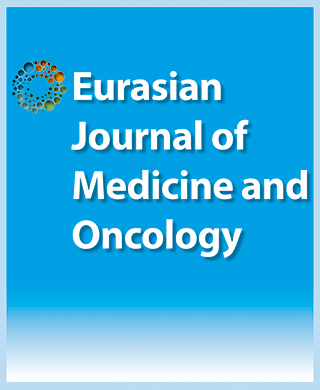

The BMP14 +104T/C Polymorphism Provides Protection Against Susceptibility to Total Knee Arthroplasty: A Meta-Analysis and Trial Sequential Analysis
Kamran Alijanpour6, Seyed Alireza Dastgheib2, Leila Azizi3, Mohammad Vakili-Ojarood4, Maryam Aghasipour5, Amirmasoud Shiri61General Practitioner, Babol University of Medical Sciences, Babol, Iran, 2Department of Medical Genetics, Faculty of Medicine, Shiraz University of Medical Sciences, Shiraz, Iran, 3Department of Internal Medicine, Faculty of Medicine, Firoozgar General Hospital, Iran University of Medical Sciences, Tehran, Iran, 4Department of Surgery, Faculty of Medicine, Ardabil University of Medical Sciences, Ardabil, Iran, 5Department of Cancer Biology, College of Medicine, University of Cincinnati, Ohio, USA, 6General Practitioner, Babol University of Medical Sciences, Babol, Iran,
Objectives: The link between the bone morphogenetic protein 14 (BMP14) +104T/C polymorphism and total knee arthroplasty (TKA) susceptibility has been previously studied with inconclusive findings. This research seeks to assess the association of the BMP14 +104T/C polymorphism with TKA predisposition. Methods: A comprehensive search of databases such as PubMed, ResearchGate, Scopus, and CNKI was conducted up to September 01, 2023. Results: Eight original studies involving 4,484 cases and 5,391 controls were reviewed. The findings indicate a protec tive effect of the BMP14 +104T/C variant against TKA susceptibility across all five genetic models: allele model (T vs. C: OR 0.856, 95% CI 0.805-0.911, p?0.001, A), homozygote model (TT vs. CC: OR = 0.748, 95% CI 0.656-0.853, p?0.001), dominant model (TT+TC vs. CC: OR = 0.855, 95% CI 0.705-0.975, p=0.020), and recessive model (TT vs. TC+CC: OR = 0.797, 95% CI 0.705-0.902, p?0.001). Stratified analyses considering factors such as ethnicity, control source, country, and genotyping methods consistently revealed significant associations. Conclusion: This finding suggests that individuals carrying the C allele of the BMP14 +104T/C polymorphism may have a lower chance of requiring TKA. These findings provide insights into the genetic factors that may influence the need for TKA and underscore the importance of further investigation in this area. Keywords: BMP14, Osteoarthritis, Total Knee Arthroplasty, Meta-Analysis
Cite This Article
Alijanpour K, Dastgheib S, Azizi L, Vakili-Ojarood M, Aghasipour M, Shiri A. The BMP14 +104T/C Polymorphism Provides Protection Against Susceptibility to Total Knee Arthroplasty: A Meta-Analysis and Trial Sequential Analysis. EJMO. 2024; 8(2): 119-129
Corresponding Author: Seyed Alireza Dastgheib



